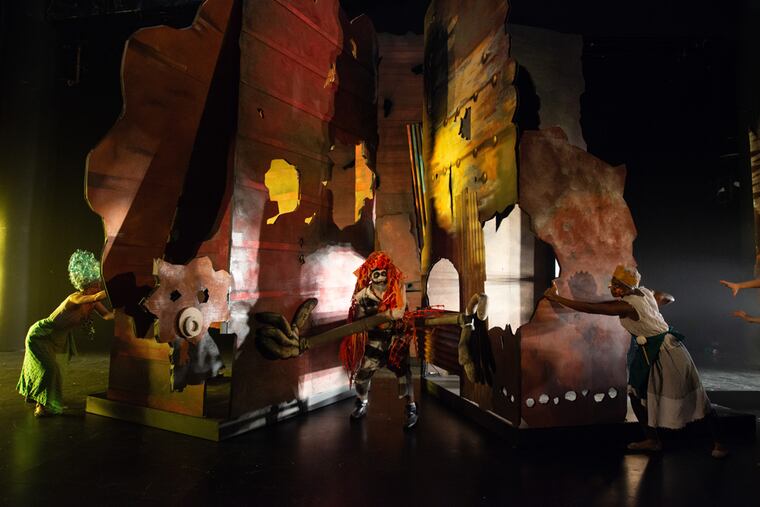‘Mr. Burns’ at the Wilma: How ‘The Simpsons’ helps us keep going when everything’s all over
The Wilma evokes a satiric, postapocalyptic world in which a group of refugees take solace in an episode of "The Simpsons." In the Wilma's gripping and ambitious production, "The Simpsons" forms the basis for a brave new world.

If civilization collapsed tomorrow, which stories would persist? In the Wilma's gripping and ambitious production of Mr. Burns, A Post-Electric Play, the TV show The Simpsons forms the basis for a brave new world.
Anne Washburn's 2012 script takes place shortly after an unarticulated apocalypse cripples society. A handful of survivors hole up in a shipping container, scavenging for canned goods, guarding their enclave with rifles, and staving off stir craziness by retelling episodes of The Simpsons (particularly, the "Cape Feare" episode from the fifth season).
Seven years later, this group now travels from one encampment to the next, performing "episodes" of The Simpsons by candlelight (complete with commercials, and a brilliant overture mash-up of Sia, Katy Perry, and Prince). They compete with other Simpsons-producing troupes, purchasing verified lines as currency while under the constant threat of marauders. Fast-forward 75 years, and the entire ethos and foundational myth of what remains hinges on a cartoon.
Thom Weaver's lighting and Michael Kiley's sound design render this futuristic desolation with terror and bleak despair, punctuated only in moments of quiet optimism and innocence by Campbell O'Hare (as the survivor Maria). But as Thomas Hobbes proposed, humans do not improve outside civilization. Mary Tuomanen (as Quincy) forcefully leads a strong ensemble, revealing actors at their nastiest, and, as Mr. Burns, Jered McLenigan exceeds anything I've seen him do in the last decade, filling the final act with existential horror.
Yury Urnov's direction balances the headiness of the play's ideas with a slice-of-life approach to the proceedings, highlighting a reversion to pettiness, mistrust, and status competition despite the extreme situation. Washburn's play itself mirrors Europe after the Black Death, with competing teams of traveling players stealing from one another while constantly under the threat of highwaymen.
In hindsight, it's a blessing that Washburn chose The Simpsons (over Friends or Cheers, or, worse, some specimen of reality TV). Like the Italy of Shakespeare's plays, America's favorite family has always served as a safe repository for us to project our discomfort, poke fun, and, from a distance, analyze and reconstruct. And though TV now teems with a plethora of postapocalyptic shows, Mr. Burns delivers a terrifying, brilliant meditation on what would happen to culture after the death of culture, and what fallow fields we would leave behind for the generations that survive.